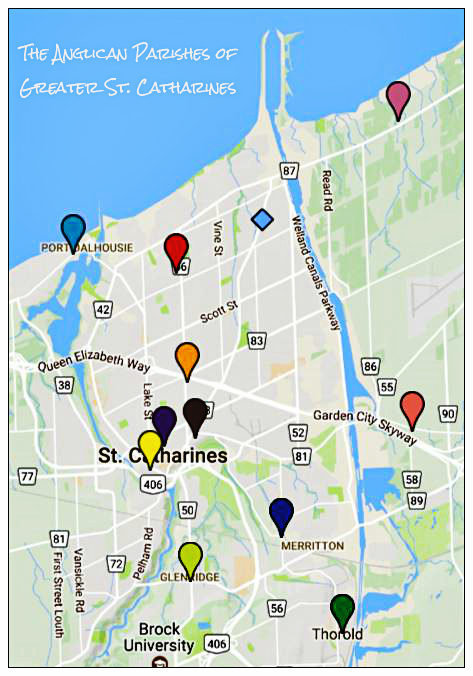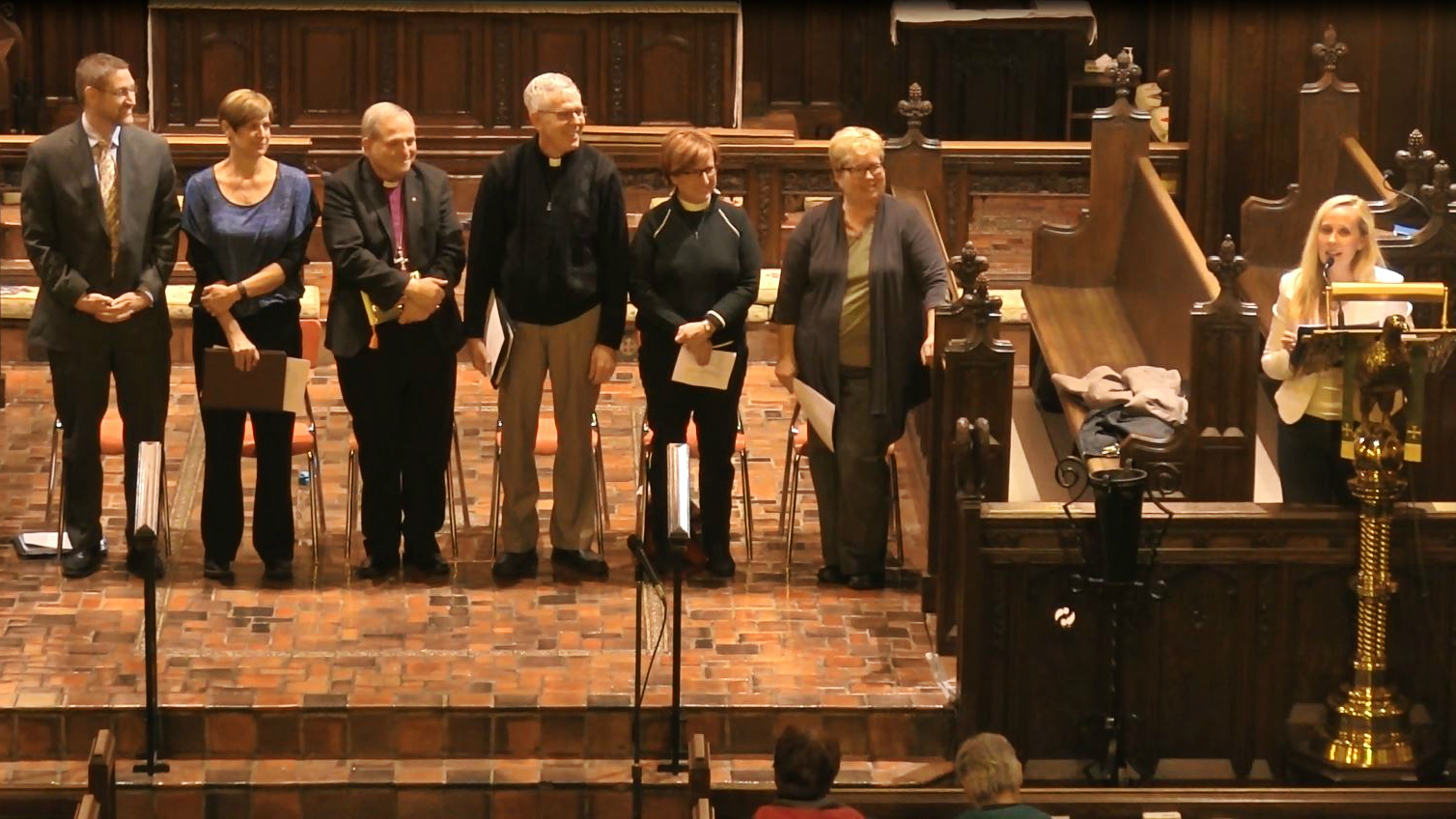Greater St. Catharines Parishes Complete Mandated Work
Report recommends further team-ministry clusters and resource-sharing
Posted December 13, 2016
“We’re excited to report that all eleven participating St. Catharines area congregations… have signified their commitment to new shared ministries, renewed faith formation, joint community engagement initiatives, and a collaborative model for implementation of the recommendations and ensuing ministry,” exclaimed Canon Martha Tatarnic, rector of St. George’s, St. Catharines, at the December meeting of Synod Council.
 This good news came from a delegation which presented the final report of the Greater St. Catharines Anglican Church Discernment Conversation, along with its seventeen recommendations. Taken together, the report and recommendations represented the culmination of nearly two years’ work to discern God’s call to the Anglican Church in the area. Canon Tatarnic noted this trailblazing discernment work mirrors the City of St. Catharines’ own “process of reimagining itself.” The delegation noted that downtown businesses are being revitalized and significant investment is happening in arts and culture, the university and regional transit, all of which carry important missional opportunities.
This good news came from a delegation which presented the final report of the Greater St. Catharines Anglican Church Discernment Conversation, along with its seventeen recommendations. Taken together, the report and recommendations represented the culmination of nearly two years’ work to discern God’s call to the Anglican Church in the area. Canon Tatarnic noted this trailblazing discernment work mirrors the City of St. Catharines’ own “process of reimagining itself.” The delegation noted that downtown businesses are being revitalized and significant investment is happening in arts and culture, the university and regional transit, all of which carry important missional opportunities.
Bishop Michael Bird’s original mandate to the participants was to develop a set of recommendations to strengthen and support the Anglican Church in the St. Catharines area and then to report back to him and Synod Council. The report notes that in the process “the participants discussed the health of their congregations, shared their programs and missional elements, learned about other forms of ministry and worship, and discussed underlying issues impacting each congregation’s ability to be thriving, relevant and impactful.” Canon Christyn Perkons, director of congregational support and development, facilitated this ground-breaking work and will continue to support the ensuing new ministry initiatives coming out of this discernment beginning with the establishment of an animation team in January.
During the presentation, Sandra Thomson, a parishioner at St. James in Merritton, invited Synod Council members to open their minds to the possibilities flowing from this report: “Can you imagine what will come out of having a place where there is a focus on the larger community and cooperation across all parishes on common goals and missions?”
The report’s recommendations deal with matters related to staffing, faith formation and worship, social justice and outreach, children, youth and family ministry, and church buildings. If the recommendations are fully implemented ministry teams will be formed, opportunities for collaborative, area-wide ministry will be seized, and the number of parishes will be reduced. In the words of Canon Perkons, “this report charts a course for a Spirit-led renewal of our ministry in the St. Catharines area.”
To deepen parish relationships and more effectively meet needs, the report recommends ministry be provided through three clusters of churches, one in the north (St. John, Port Dalhousie, St. Columba, Christ Church, and St. George’s Homer), one in the city centre (St. George’s, Grace, St. Thomas and St. Barnabas) and one in the south (St. James, Transfiguration and St. John the Evangelist, Thorold). Already shared ministries are in evidence; shared summer services in the south and a joint youth group in the centre as well as city-side worship services, and St. George’s and Grace have begun exploring doing ministry as one. There are no specific recommendations for which, if any, of these parishes will close, but each cluster is to “continue the process of relationship building and partnering to right-size our property footprint.”
Reflecting upon the work embodied in the report, the presenters suggested that the process the Greater St. Catharines parishes undertook “can be a model to others across Canada and even across the communion in terms of reimagining our church.” Bishop Michael affirmed this sense, observing that that this work may very well be unique work in Anglican Church of Canada.
Synod Council received the report and passed a resolution to express “gratitude to the 11 parishes who worked for two years to discern new ways of undertaking ministry in their wider community.” The governing body of the diocese also encouraged the Bishop to support the implementation of the ministry initiatives described in the report.
The full report is available here.
